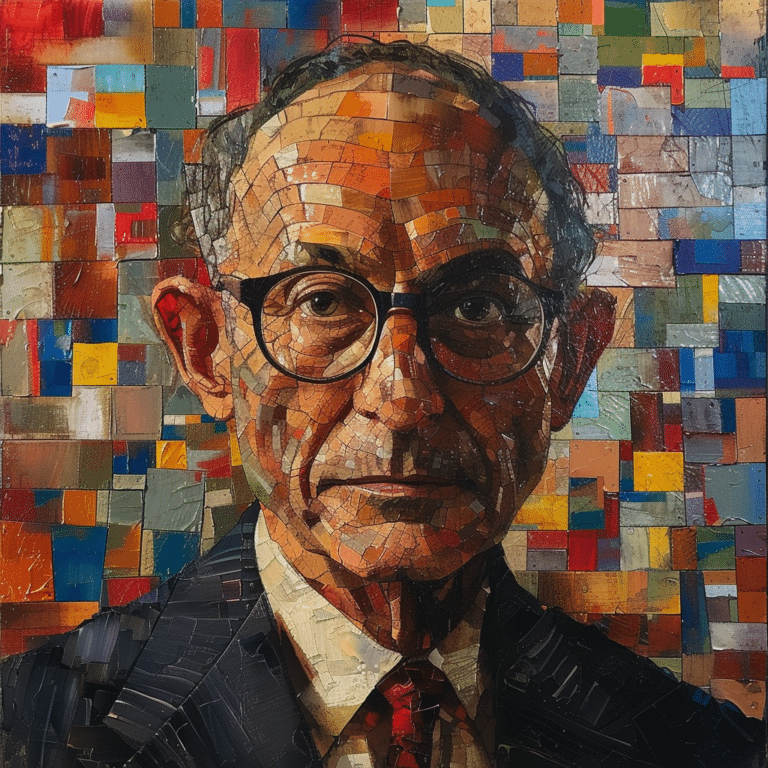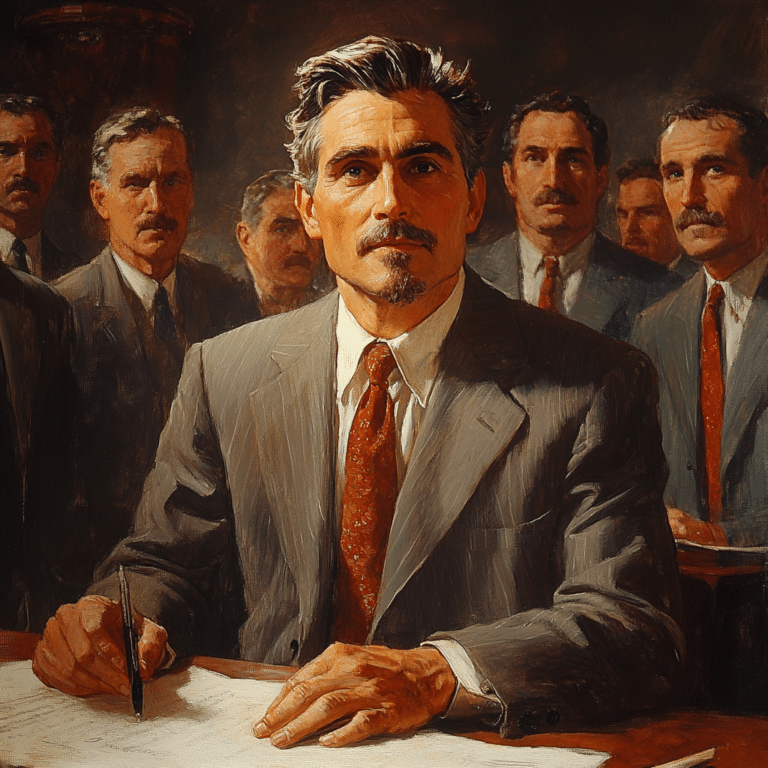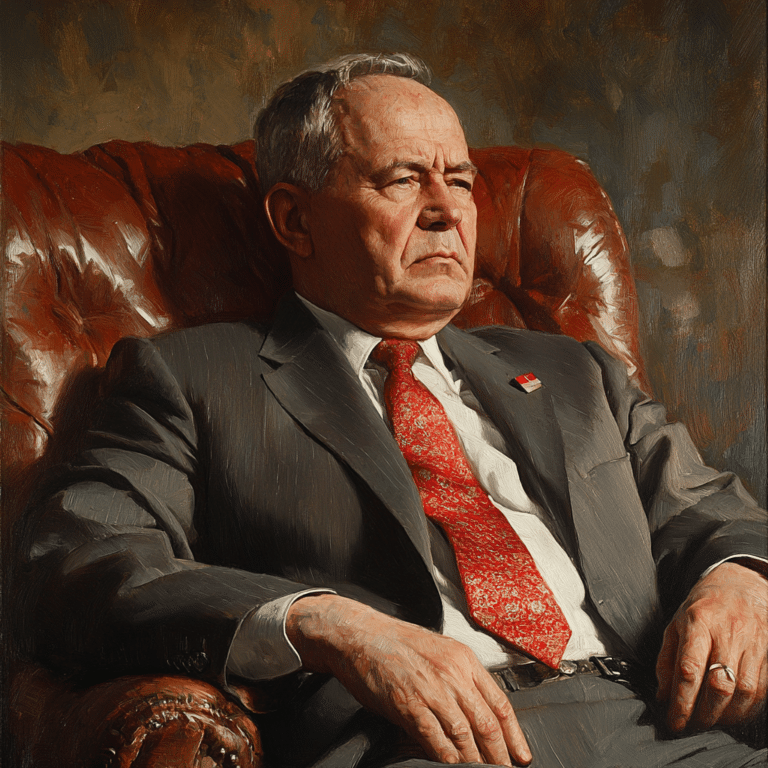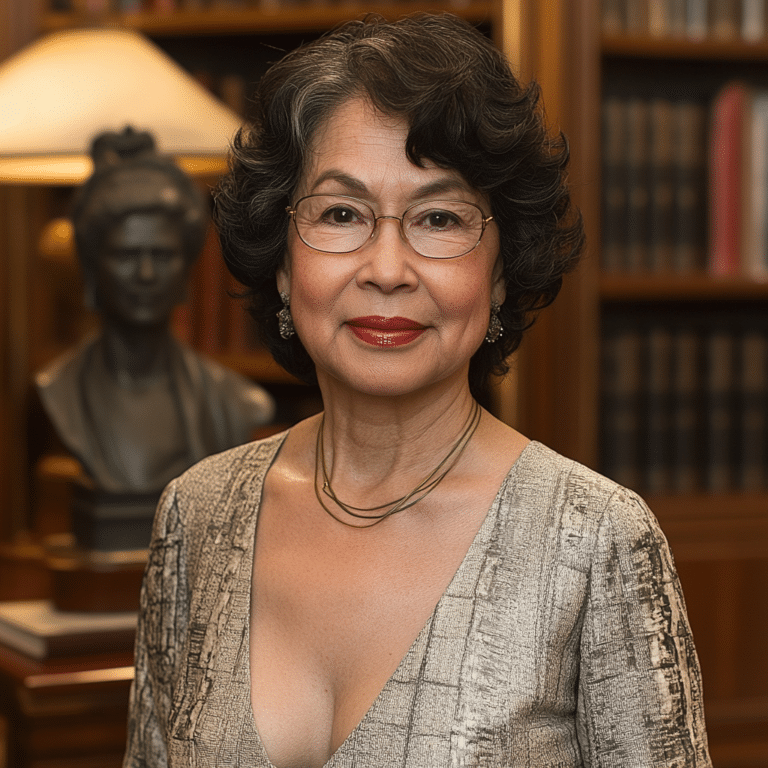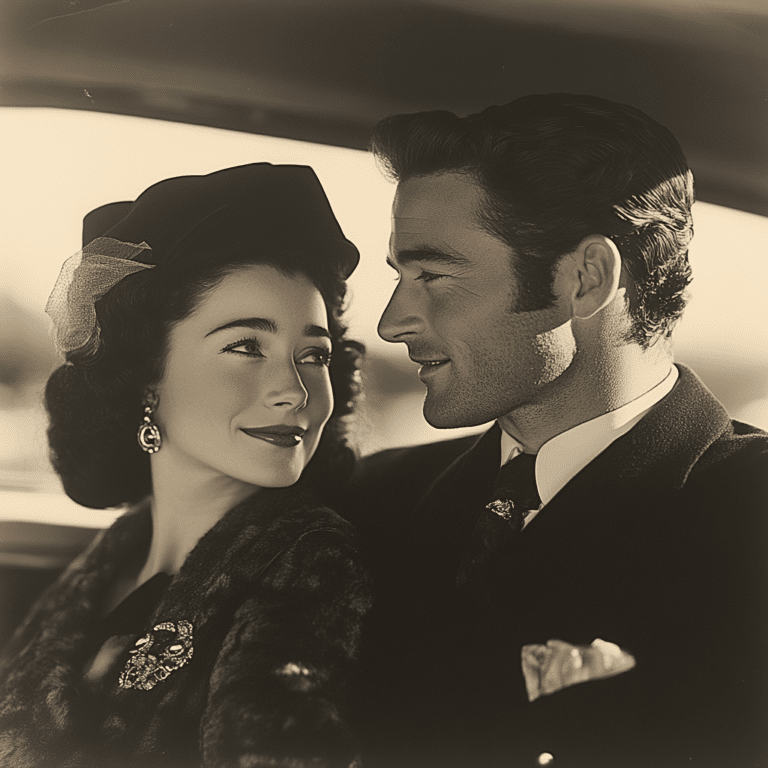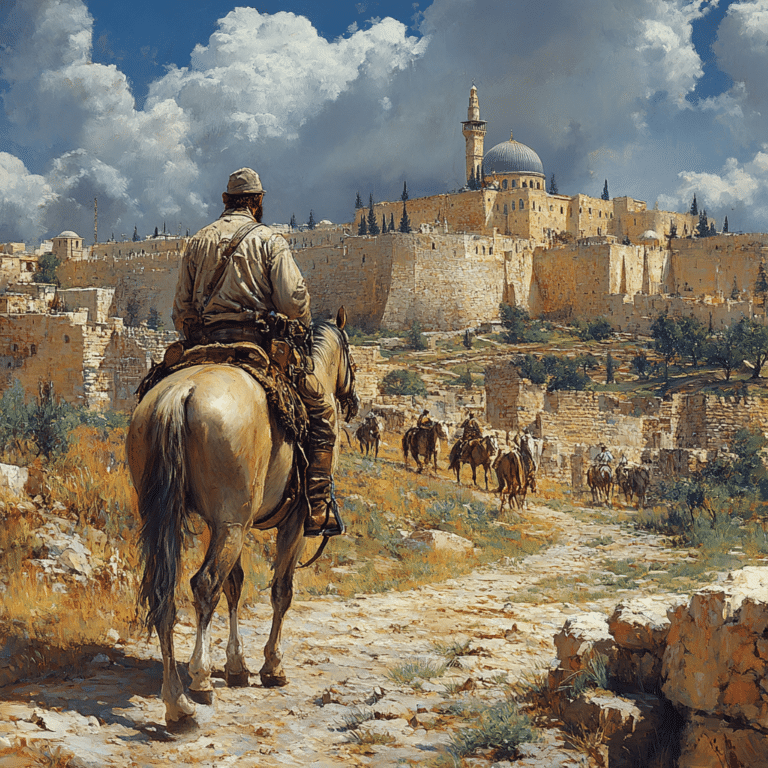Menachem Begin is not just a name etched in the annals of Jewish history; he’s a towering figure whose actions continue to reverberate through time. As commander of the Irgun, an eloquent leader of the opposition in the Knesset, the Prime Minister of Israel, and the first Israeli statesman to clinch the Nobel Peace Prize, Begin’s life unfolds like a vivid tapestry, rich with the hues of conflict, peace, and statesmanship. His odyssey from the echelons of the Irgun to the corridors of power where he served as the Prime Minister for six and a half pivotal years — from spring 1977 to fall 1983 — encapsulates a period of profound transformation for both Israel and the broader region.
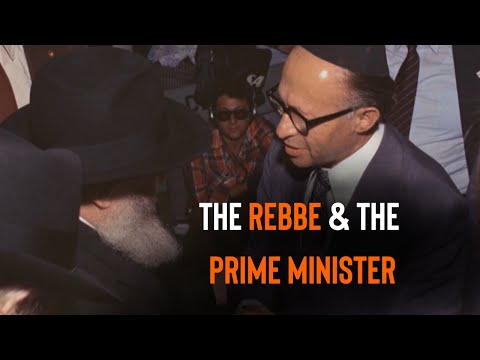
The Inauguration of Menachem Begin’s Premiership
In the spring of 1977, Israel was perched on the cusp of a dramatic shift. Swept into power, Begin’s ascendancy to the prime minister’s seat overturned decades of dominance by the Labor Party, signaling a seismic transition in Israeli politics. A masterful orator with a law degree from the University of Warsaw, Begin melded his legal acumen with a fervent ideology, resonating with a populace thirsty for change.
Begin’s background was diverse; a blend of right-wing Zionism and pragmatic statesmanship. As leader of the Likud bloc, his promises were manifold: he pledged to fortify national security, underscored the importance of domestic tranquility, and envisioned economic rejuvenation. His ideologies, deeply rooted in Jewish history and tradition, articulated a vision for Israel that was at once conservative and revolutionary.
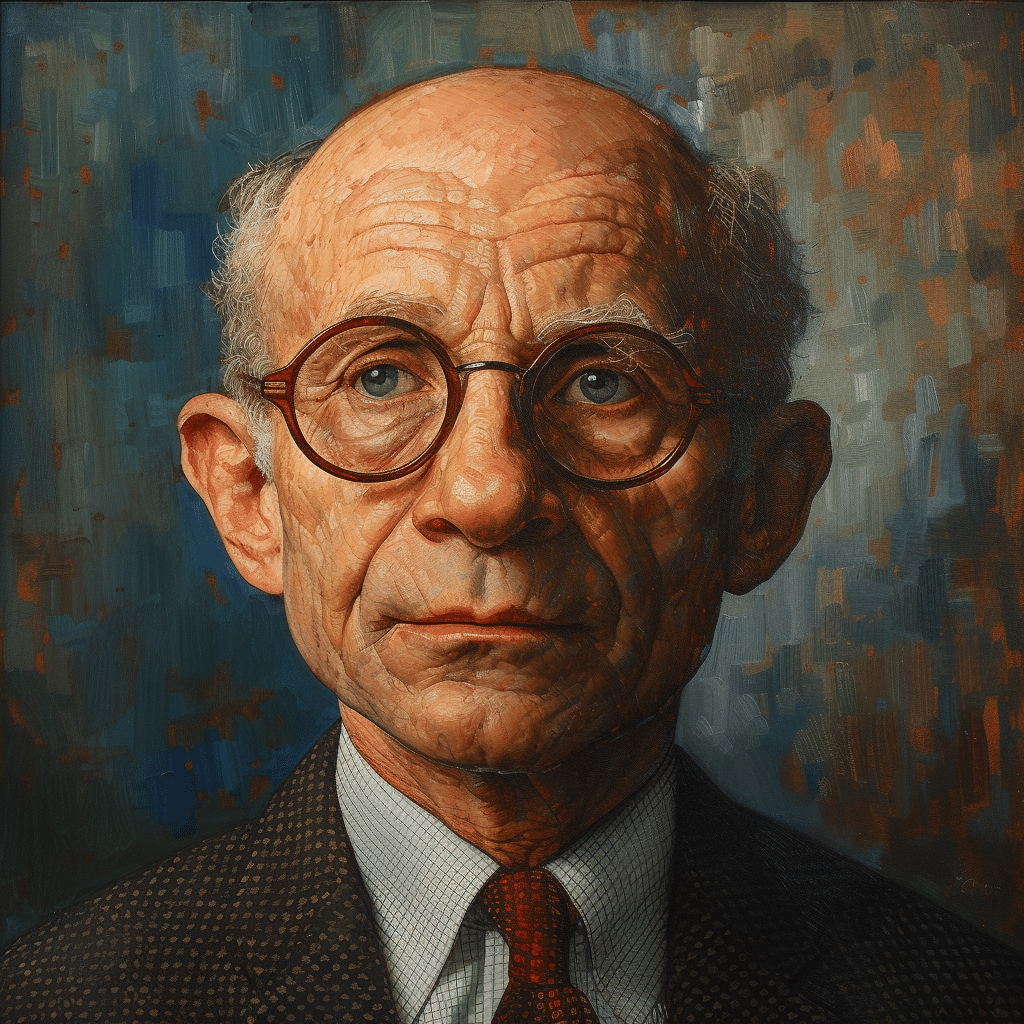
The Egyptian-Israeli Peace Treaty: A Testament to Menachem Begin’s Diplomacy
The 1979 peace agreement with Egypt stands out, like a beacon that punctuated Begin’s tenure. The world watched, often with bated breath, as Begin and Egyptian President Anwar el-Sādāt traversed the rocky road toward peace, ultimately culminating in the Camp David Accords. The Egyptian-Israeli Peace Treaty was nothing short of miraculous, a Hardy handshake that seemed an improbable fantasy in a region fraught with enmity.
As corecipients of the 1978 Nobel Peace Prize, Begin and El-Sādāt were lauded for their courage and vision for crafting a diplomatic masterpiece. The treaty recalibrated the geopolitical compass of the Middle East, allowing Israel to finally achieve a normalized relationship with its largest Arab neighbor.
The journey there, however, hardly emulated domestic tranquility. Begin’s electorate was sharply divided, with hardliners deeming concessions of the Sinai Peninsula as nothing short of treachery. Internationally, the stakes were equally high, pivoting on Begin’s adeptness in managing the delicate confluence of superpower interests and Arab skepticism.
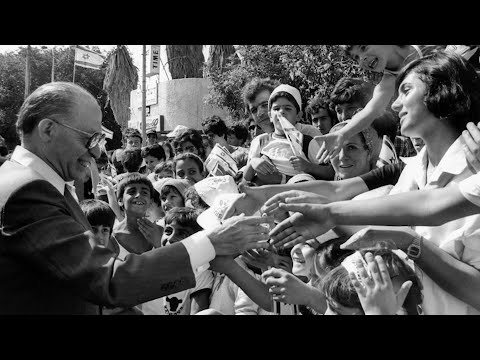
| Category | Details |
|---|---|
| Full Name | Menachem Begin |
| Birth – Death | August 16, 1913 – March 9, 1992 |
| Early Life & Education | Born in Brest-Litovsk, Received Law Degree from University of Warsaw, 1935 |
| Pre-Political Career | Commander of the Irgun (Zionist paramilitary organization) |
| Political Career | – Leader of the opposition in the Knesset |
| – Prime Minister of Israel (1977 – 1983) | |
| Major Achievements | – First Israeli Prime Minister to receive the Nobel Peace Prize |
| – Signing of the Camp David Accords | |
| – Peace treaty between Israel and Egypt, formally signed in 1979 | |
| Nobel Peace Prize | 1978 (co-recipient with Egyptian President Anwar el-Sādāt) |
| Contemporaneous Historic Event | Assassination of Yitzhak Rabin in 1995, after Begin’s tenure |
Economic Reforms and Challenges under Menachem Begin
But Begin’s premiership wasn’t just about making peace with erstwhile foes; it was also about buttressing Israel’s economic pillars. The economic tribulations of the era beckoned for reform, and Begin’s government heeded the call. Despite policy successes, his approach to tackling inflation, along with “hit and miss” interventions in state enterprises, offered mixed results.
Begin’s government’s economic policies:
While these efforts did impart fresh vigor into Israel’s economy, not all was smooth sailing. Inflation continued to ransack the nation’s currency, and the economic divides within Israeli society grew starker. Cognizant of the knock-on effects on housing and employment, Begin found these economic challenges a persistent thorn in his side.
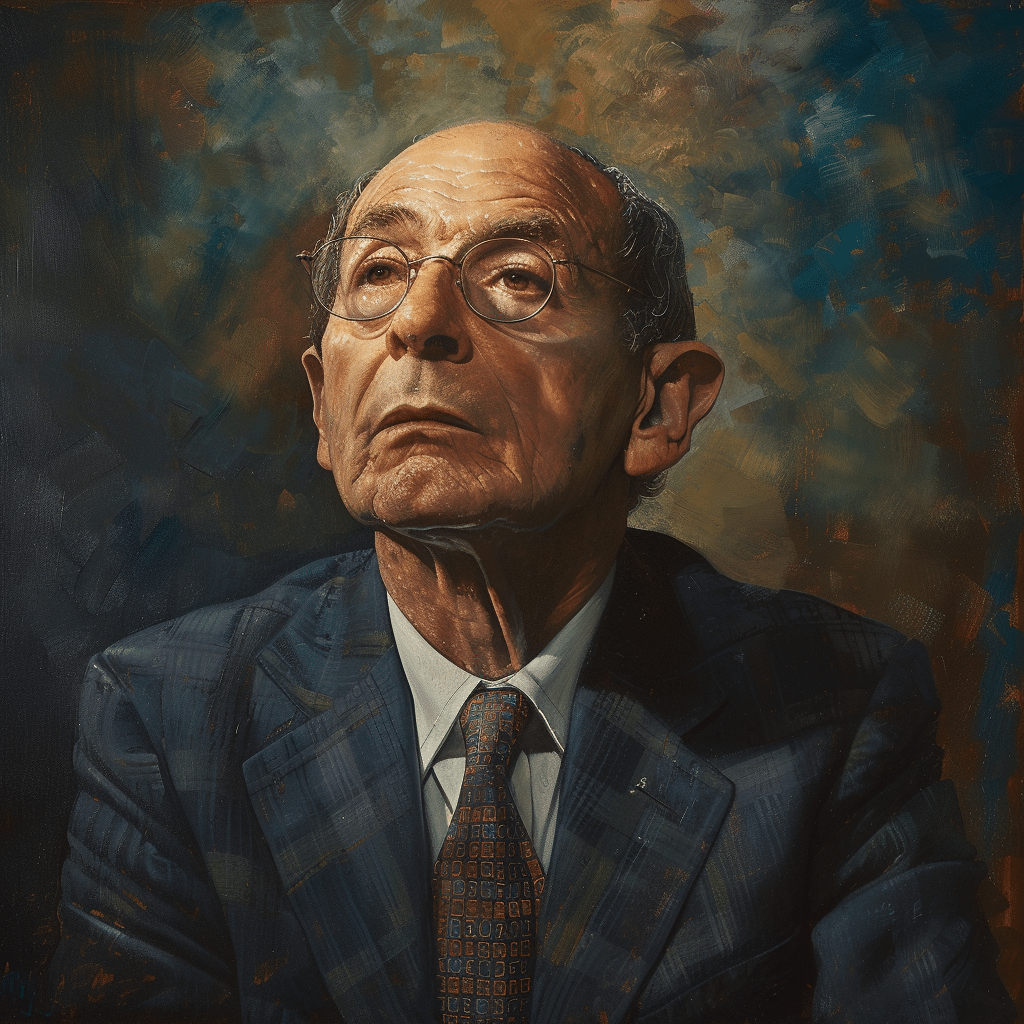
Menachem Begin’s Hand in Shaping Israel’s Social Fabric
Begin knew the social fabric of Israel needed mending. He perceived the state as the guardian of its citizens, Jewish or not, and implemented policies reflecting this ethos. With a focus on bolstering immigration and absorption, Begin welcomed Jews from all corners of the earth, reinforcing the narrative of Israel as a haven for the diaspora.
Housing and education received particular attention. Begin’s government launched ambitious housing projects to accommodate the influx of new immigrants; these housing reforms served not just as shelters but as tangible manifestations of Begin’s commitment to social equity. In education, the emphasis was on inclusive curricula that bridged the chasms between Israel’s diverse demographics, laying foundations for a more cohesive society.
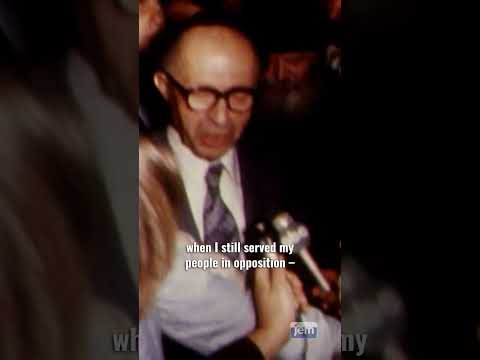
Project Lebanon: Menachem Begin’s Controversial Military Endeavors
If Begin’s legacy was synonymous with peace with Egypt, it also bore the scars of military strife. Operation Peace for Galilee, the 1982 invasion of Lebanon intended to uproot Palestinian militant groups, became a quagmire that drew both domestic and international ire.
Begin stepped into the fray, driven by the perennial quest to guard Israel’s security. Yet, as the operation spiraled, questions arose. What was envisaged as a swift tactical incursion bloated into a protracted occupation, mired by the massacre at Sabra and Shatila that stained Israel’s moral fabric.
The political fallout was monumental. The Israeli public, initially supportive of Begin’s decision to ensure northern border security, began to balk as the casualties mounted and the moral complexities of military engagement intensified.
The Autonomy Talks: Menachem Begin’s Approach to the Palestinian Issue
Menachem Begin’s imprints on matters of peace weren’t confined to Egypt. The Autonomy Talks, while less celebrated than the Camp David Accords, were another audacious gambit by Begin to navigate the labyrinthine paths towards solving the Israeli-Palestinian conflict.
Begin’s approach involved granting administrative autonomy to Palestinians in the territories; a bold stride, albeit one shackled by the competing narratives and claims. While these talks laid the bedrock for subsequent peace initiatives, the audacity of Begin’s vision belied the complexities on the ground; ultimately, the talks succumbed to the impasse that continues to be as stubborn as a mule in Middle Eastern geopolitics.
The Resignation of Menachem Begin and His Political Aftermath
By 1983, the weight of leadership and the toll of events — both wellbeing and personal — led Begin to resign. The reasons Behind his resignation were multi-faceted: the Lebanon War’s complications, his wife’s passing, and a punctured spirit after decades spent in the political kiln of Israel.
The ramifications were both immediate and far-reaching. The Likud party found itself navigating a post-Begin era, grappling with the challenge of maintaining cohesion in the face of shifting political winds. As for the broader Israeli political spectrum, Begin’s departure ushered in an era of new leadership and changing strategies, considering the maelstrom of regional and domestic pressures.
Conclusion: The Enduring Legacy of Menachem Begin’s Premiership
In hindsight, the six key years of Menachem Begin’s Premiership warrant not just a footnoting in history books but a thorough dissection to glean lessons for contemporary leadership. Begin’s premiership redefined Israel’s internal and external politics, leaving an indelible mark that extends well beyond his tenure.
Today, as we reflect on how Menachem Begin navigated his nation through peace and war, through economic dire straits and social strata, his legacy is evident in the peace treaties that persist, in the cities that he helped establish, and in the fortitude of leadership that guides through the toughest of times. His actions were often the subject of heated debate, his decisions sometimes deeply divisive, yet the bold strokes with which he painted his legacy are unmistakable.
The lessons from his Premiership are manifold, self-evident to prospective voters and statesmen alike. As Israel continues to chart its course, the echoes of Begin’s endeavors ring loud, reminding us that dichotomies of war and peace, austerity and prosperity, are the eternal dance of politics.
Such is the story of Menachem Begin, etched in the tapestry of history, a tale worth recounting for generations to come.
The Intriguing Six-Year Tenure of Menachem Begin
Menachem Begin’s stint as Prime Minister of Israel was nothing short of a rollercoaster ride—six years that reshaped not just a nation but rippled across the globe. His leadership was characterized by pivotal decisions, eye-opening policies, and a dedication to ensure domestic tranquility that would’ve made even the most critical political analysts pause for thought.
The Architect of Peace
“Hold the phone!” you might say, but did you know that Menachem Begin was the mastermind behind a historical handshake? In 1979, he signed the Egypt-Israel Peace Treaty, which was nothing short of trying to insure domestic tranquility in a region where peace seemed more like a mirage. This was as groundbreaking as finding a home that perfectly harmonizes with the stability provided by Freddie Mac And Fannie mae in the choppy sea of property. Just like how folks rely on Freddie Mac and Fannie Mae to secure their dream abode, Begin’s peace treaty laid the foundation for a new era in the Middle East.
Silver Screen and Political Scenes
You’d think a political figure like Begin has little to do with the limelight of Hollywood, but sit tight! The political drama in his tenure would have had enough material for scriptwriters in African casting sessions to ponder upon roles —if only politics were the stuff of movies. Menachem Begin’s life could have piqued the interest of any African casting director looking for a tale of perseverance and daring leadership akin to the heroes of the silver screen.
The Man Behind the Scenes
Now, just like the lesser-known George Richey behind country music’s iconic figures, Menachem Begin’s contributions often played out subtly but powerfully on the world’s stage. George Richey, despite not always being in the spotlight, significantly influenced the music industry. Similarly, Begin’s political manoeuvres shaped both his nation’s destiny and international relationships.
Gaming the Political System
Hold your horses, gamers! While the release of a video game might receive a Diablo 4 review bomb, Begin’s political career never tanked despite facing diverse political challenges. His governance might not have been as divisive as the reception of “Diablo 4”, but he certainly had his fair share of controversies and bold moves that stirred the pot.
Voting for the Future
Okay, folks, when we talk about prospective voting, we’re really diving into how voters might weigh their options based on promises more than past actions. Menachem Begin’s re-election campaigns were a classic case of prospective voting, as he campaigned on what was yet to come, always having an ace up his sleeve.
Texan-sized Legacy
Now, I bet you’re wonderin’, “What the heck does Menachem Begin have to do with the best Places To live in Texas? Well, nothing directly, but here’s the kicker: like finding the best places to live in Texas—each with its unique charm and character—Begin’s policies and legacy illustrate the diverse and complex nature of leadership. One could argue his leadership style is as diverse as Texas itself, from the Panhandle to the Gulf Coast.
So there you have it, folks—six years of Menachem Begin’s prime ministership encapsulated. A period as multilayered as a Texas-sized steak, served with a side of Middle Eastern diplomacy, a sprinkle of Hollywood drama, and a touch of voting strategies that could stir up even the calmest waters. Now ain’t that a slice of historical trivia pie worth savoring?
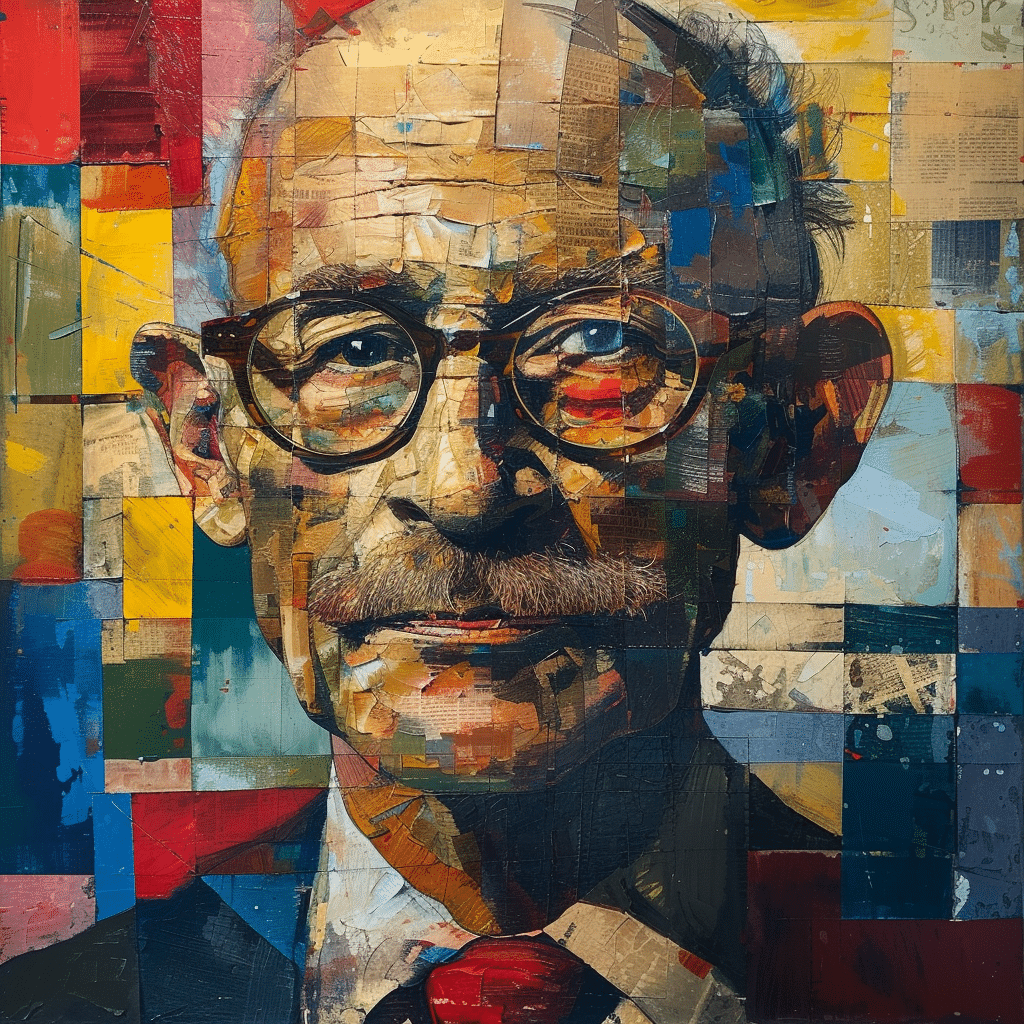
What was Menachem Begin known for?
What was Menachem Begin known for?
Well, Menachem Begin definitely left his mark, etched in Jewish history as the tough-as-nails commander of the Irgun, the persistent thorn in the side of the establishment as leader of the opposition in the Knesset, Israel’s Prime Minister who wasn’t afraid to shake things up, and yep, the trailblazing Israeli statesman snagging the Nobel Peace Prize for reaching across the aisle to forge peace.
Why did Begin get the Nobel Peace Prize?
Why did Begin get the Nobel Peace Prize?
Hold onto your hats ’cause Menachem Begin wasn’t just whistling Dixie when he went the extra mile for peace. He scored the Nobel Peace Prize in ’78, alongside Egyptian Pres. Anwar el-Sādāt, for pulling off the unthinkable—a bona fide peace treaty with Egypt, which turned the page on decades of hostility. Now that’s what you call a game-changer!
Who was the prime minister of Israel from 1977 1983?
Who was the prime minister of Israel from 1977 to 1983?
Talk about the man of the hour, from spring ’77 to fall ’83, Menachem Begin was calling the shots as Israel’s Prime Minister. Six and a half years of steering the ship, pushing boundaries, and yes, changing the face of the Middle East as we knew it.
Which Israeli PM was assassinated?
Which Israeli PM was assassinated?
Oh, it was a heartbreaker, alright. Yitzhak Rabin, Israel’s PM, was cruelly snatched away right after rallying the crowd for peace in the iconic Oslo peace process. Just shows, sometimes pushing for peace comes at the highest price.
Who was Menachem in the Bible?
Who was Menachem in the Bible?
Backtracking a few millennia, Menachem in the Bible wasn’t a player in modern politics. Instead, he was one of those Old Testament guys, a king of Israel who had a name meaning “comforter”—though his rule wasn’t exactly a walk in the park.
Where did Menachem Begin come from?
Where did Menachem Begin come from?
Menachem Begin wasn’t born with a silver spoon in his mouth, no sirree. He hailed from good ol’ Belarus, cut his teeth on the law at the University of Warsaw, and tried to make a difference for those around him.
Who was the first person to get a Nobel Peace Prize?
Who was the first person to get a Nobel Peace Prize?
Alright, history buffs, time to rewind to 1901 when Henry Dunant, the Swiss brainiac who founded the Red Cross, and Frédéric Passy, a French peace activist, shared the very first Nobel Peace Prize. Talk about setting the bar high!
Who has won the most Nobel Prizes for one person?
Who has won the most Nobel Prizes for one person?
Oh, come on, this one’s a no-brainer! The legendary Marie Curie didn’t just win a Nobel Prize—she went back for seconds. She made history, snagging two Nobels in Physics and Chemistry. Now that’s what you call a mic drop in the science world.
How old was Menachem Begin when he died?
How old was Menachem Begin when he died?
Put on your calculating caps, folks! Menachem Begin was born in 1913 and checked out in 1992, making him a ripe old 78 years when he bid adieu to this world. Quite a run, if you ask me.
What party was Menachem Begin?
What party was Menachem Begin?
Menachem Begin wasn’t one to follow the herd, nosiree. He stood at the helm of the Likud party, turning Israeli politics on its head and paving the way for a different kind of leadership.
How did Menachem Begin died?
How did Menachem Begin die?
The tale of Menachem Begin’s final curtain isn’t one for the faint-hearted. He battled a tough fight with heart problems, which ultimately led him to his last goodbye in ’92—ending the chapter of a life that was anything but ordinary.
Who attacked Israel in 1973?
Who attacked Israel in 1973?
Cast your mind back to ’73, when the Yom Kippur War caught everyone napping. It was Egypt and Syria who decided it was high time to catch Israel off guard, leading to a conflict that’s etched in history books.
Which Israeli president went to jail?
Which Israeli president went to jail?
Alright, spill the tea. It was Moshe Katsav getting the perp walk, shocking the nation when he went from the Presidential mansion to the Big House following charges you wouldn’t want your grandmother hearing about.
What Israeli prime minister went to jail?
What Israeli prime minister went to jail?
It’s like something out of a political thriller except it happened. Ehud Olmert went from the Prime Minister’s office to getting acquainted with the inside of a prison cell, proving that even the mighty can fall hard.
Who is current president in Israel for now?
Who is the current president in Israel for now?
Fast-forward to the here and now—Isaac Herzog is the name on everyone’s lips as Israel’s president. Taking the reins in 2021, he’s the man with a plan, sitting pretty in the presidential residence.

